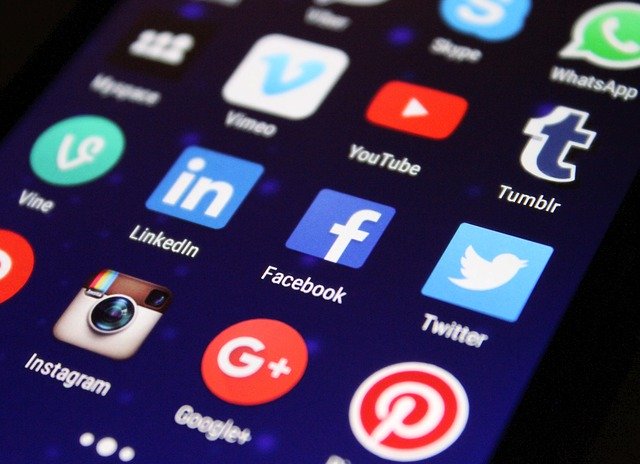
A Virus of the Mind
The Anxiety Epidemic
Read a summary using the INOMICS AI tool
Even before COVID-19, students across the world face a mental health crisis of unprecedented proportions. Columnist James Matthew Alston investigated the phenomenon, looking particularly at university responses - his conclusions made for tough reading. Many institutions are overwhelmed, their mental health services ill-equipped to cope with the growing demand. Consequently, students are often left untreated in precarious states of mental health – an unsustainable situation that, as the statistics show, can end tragically.
On a more encouraging note, Alston observed an opening up of the conversation on mental health, a much overdue de-stigmatisation, which has facilitated the gradual emergence of initiatives aimed to mitigate the problem, found in places as far-flung as New York and Mangalore. Although a welcome sign, it’s clear much more needs to be done – too many young people are falling through the cracks.

That universities are incubators for mental health problems is unsurprising. Adapting to life away from home for the first time can be especially stressful. Anyone who has studied will remember the unforgettable feeling of being adrift in a sea of new people and knowing no one. A thrill to some, it can be overwhelming for others. In either case, it comes with a set of unavoidable difficulties, which can, if unaddressed, trigger or exacerbate a whole range of mental conditions, from anxiety and depression to social phobia.
Anxiety rising
Of these conditions, it's cases of anxiety that are most on the rise: it's now the most common mental illness in the US, affecting over 40 million people, the majority young adults. Many, too, are suffering alone. The Anxiety and Depression Association of America (ADAA) estimates that just 36.9% are receiving treatment – and the consequences of this are huge. Left untreated, anxiety often operates as a ‘gateway’ disorder – the isolation it encourages leading to drug and alcohol abuse, and sometimes depression. Swift, comprehensive, and stigma-free treatment, therefore, is not just recommended, it’s imperative.
But what exactly are the roots of this trend towards anxiety? There are, unfortunately, a multitude. Alston, for instance, placed a strong emphasis on diet – undoubtedly a key component. This article, however, looks at other behavioural habits the modern world fosters; specifically, the pernicious role social media plays, its infiltration of our homes, our pockets, and how, for many, it now frames the entirety of their lived experience.
Where to begin?
The use of social media is deeply embedded in the lives of Gen Zers, many of whom are students. And as they are now experiencing, such dependence comes at a price. Speak to any therapist who treats young people and they will tell you it’s Instagram, Facebook and Twitter that are now the bane of their work. However well-intentioned they may profess to be social media is known, through extensive empirical study, to breed a cocktail of unhealthy personality traits, including excessive comparison, envy, and status anxiety. Relentlessly quantifying our humanity, as underpins the social media experience, is now an ingrained aspect of our lives. Every action, experience, or thought can be measured and judged for its intelligence, interest, humour, or whatever its perceived purpose. Almost inevitably, this leads to the incessant judgement of oneself for either failing to achieve the ‘success’ of one’s previous posts, or maybe worse, failing to achieve the ‘success’ of one’s friends.
A little social competitiveness is relatively benign, unavoidable and an inherent function of being human – as long as we value anything, hierarchies of a sort will always emerge. What social media has done, though, is distort our systems of value, increase the obsession with which we approach these systems, and encourage constant measurement of these values as a means of assessing our lives. It has, in effect, distilled life into a small number of metrics, most notably the number of friends and number of likes. Through these categories, one can ascertain how funny, intelligent, or popular one is, at all times, at the click of a button; for many, it is never enough.
To put this into some kind of perspective, Generation Zers spend, on average, four hours a day on social media – and this is no chance happening. The ‘attention economy’, of which Facebook, for example, is a part, relies on the addictive quality of the platform. The longer attention can be kept on a page, the better that page functions as an advertising space, and the more advertisers can be charged to advertise on it. Whether it’s Facebook’s like button or Snapchat’s streak, these platforms are designed to trigger hits of dopamine – the same chemical secreted following sex and cocaine use – that keep users coming back for more. That one of the designers of Facebook’s ‘like’ button restricts his children’s Facebook access speaks volumes as to how insidious this business model can be. The effects of this widespread addiction are now visible everywhere, having transformed human behaviour.
Increasingly, checking social media has replaced actual social interaction. On entering a room many will immediately check into social media to avoid potentially challenging small talk with the room’s occupants. Take a study break and instead of shooting the breeze with fellow students the same thing often occurs. This behaviour is not without consequence. As Psychology Today has reported, social connections – in the ‘real world’, that is – lay the foundations of self-confidence, and their deprivation can have damaging effects to self-esteem. Simply put, people get out of practice communicating verbally and when confronted with a situation in which it’s necessary they can become anxious.
Perfectionism reigns
The world people enter when ‘escaping’, although purporting to be real, or at least a reflection of the real, is far from it. Rather, it is a highly polished, idealised version of life; a world of heavily curated profiles, smiling faces, and endless attractive friends. Gone is the mess, the ugliness, and the imperfection of actual reality – the hallmarks of being human. Lift one’s head from phone to the real world and these elements rush back to fill one’s vision, the drudgery suddenly more potent in comparison with the phone world’s shimmering, unachievable wonderfulness. The discrepancy between these two realms has led to a damaging increase in perfectionism. Many have developed impossible expectations of life that operate in conjunction with an insatiable inner critic that constantly questions why things aren’t matching up with the doctored beauty of social media.
From a scientific standpoint, excessive screen use - as social media demands - is proven to release stress hormones that arouse the central nervous system. This can prompt feelings of anxiety and agitation, which disrupt sleeping patterns, creating a dangerous cycle. In this instance, young people can get stuck in a rut, unable to escape a highly adrenalised existence, a pattern that causes inevitable psychological crashes – and physical crashes, when the adrenaline runs out – as well as moments of crushing self-doubt. Generation Zers, many of whom have recently become students, are experiencing the brunt of this. In addition to contending with the stresses, the ups and downs, of campus life, they're doing so while being the first demographic cohort raised with social media.
Are we surprised?
That this phenomenon has arisen in our culture is in many ways unsurprising. Since the 1960s consumerism has penetrated all aspects of our lives, both public and private. Problems, it's drummed into us, can be solved by means of simple acquisition. Clothes, appliances, food, lifestyle: these are our sources of happiness and fulfilment; this is where we can find satisfaction and pleasure. Alas, as many are figuring out, it's not that easy. Temporary fixes may be had, at a price, but a more permanent sense of contentment often remains elusive, tantalisingly out of reach. Instead, what develops is a deep craving, the unsatisfiable conviction that it's the next purchase that's all important. And there lies the addiction, the endless search. Social media relies on this same logic, making it applicable to our very being: if only the profile picture gained 10 more likes, personality, and as a corollary self-worth, would be validated. It‘s an unsustainable way to live if one wants to find inner peace.
Clearly, the way we are using social media is not conducive to good mental health. The connections between its incessant use and anxiety are clear, medically supported, and need greater exposure. The present situation should serve as motivation to change; things look bleak; the statistics pertaining to mental conditions grim. A good starting point could be a wholesale reassessment of our collective relationship with social media: how is it serving us? What kind of behaviour is it encouraging? Would we benefit from moderating the amount of time we spent on it? The problem is not going to solve itself; the profit-hungry social media giants will make sure of that, and society has a responsibility to protect its younger generations; to make sure their futures are safe. It is, therefore, incumbent on us to reassert our own values, as we would like them to be, and stop dancing to the algorithm’s money-driven tune.
-
- Postdoc Job
- Posted 5 days ago
Postdoctoral Fellow in Economics
At St. Olaf College in Northfield, United States
-
- Postdoc Job
- Posted 1 week ago
6-Year Postdoc with Option for a PermanentContract (f/m/d, 100%)
At ZEW – Leibniz-Zentrum für Europäische Wirtschaftsforschung GmbH Mannheim in Mannheim, Germany
-
- Research/Project Funding Opportunity
- (Online)
- Posted 1 week ago
Research Grant on Education - One Grant worth €200,000
Starts 15 May at UniCredit Foundation













